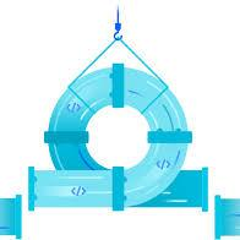gradle-swagger-plugin
This project is forked from dave-ellis/gradle-swagger-plugin. (See https://github.com/dave-ellis/gradle-swagger-plugin)
Usage
Gradle
buildscript {
repositories {
mavenLocal()
maven { url "http://repo.maven.apache.org/maven2" }
}
dependencies {
classpath group: 'com.github.ci-cd', name: 'gradle-swagger-plugin', version: '1.0'
}
}
apply plugin: 'maven'
apply plugin: 'swagger'
apply plugin: 'java'
dependencies {
compile group: 'com.wordnik', name: 'swagger-annotations', version: '1.3.10'
...
}
swagger {
endPoints = [
'com.foo.bar.apis',
'com.foo.bar.apis.internal.Resource'
]
apiVersion = version
basePath = 'http://www.example.com/rest'
swaggerUIDocBasePath = '/swagger-ui/rest-api-docs'
swaggerDirectory = "${buildDir}/site/api-docs"
}
- The swagger block currently only allows the definition of one
apiSource. - Java classes containing Swagger's annotation
@Api, or Java packages containing those classes can be configured inendPointslist. - Note: Works only with
swagger-annotationsartifact fromcom.wordnikgroup ID. outputTemplateis the path of the mustache template file.outputPathis the path of your output file, not existed parent directory of the file will be created.- If
swaggerDirectoryis configured, the plugin will also generate a Swagger resource listing suitable for feeding to swagger-ui.useOutputFlatStructureindicates whether swagger output will be created in sub-directories by path defined in@com.wordnik.swagger.annotations.Api#value(false), or the filename will be the path with replaced slashes to underscores (true). Default: true
